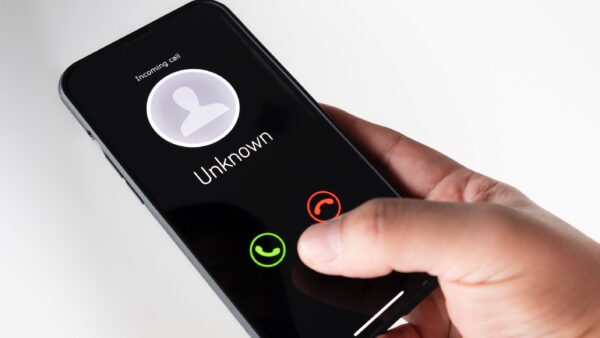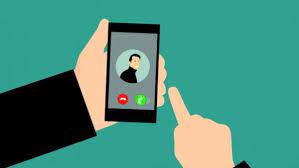Spam alert : us9514961195221 , us9514 , 9611 , 95221 , usps tracking ,++us9514961195221
Introduction
US9514961195221 : scams and fraudulent activities have become more sophisticated, often targeting unsuspecting individuals through various communication channels. One such scam that has gained notoriety is the US9514961195221 scam, a fake text message scheme designed to deceive and defraud recipients. we will delve into the details of this scam, its modus operandi, red flags, and ways to protect yourself from falling victim to such deceitful tactics.
Read more : https://thenewshunts.com/2033222305-who-called-me-in-uk-020-area-code/
The US9514961195221 Scam Unveiled
The US9514961195221 scam is a text message fraud that typically begins with a seemingly innocuous message received on a mobile device. The message may vary in content but usually involves a false claim of a financial windfall, a fake lottery win, or a suspicious prize offer. The goal of the scam is to manipulate recipients into divulging personal information or making monetary payments to the fraudsters.
-
Phishing for Personal Information
One of the primary objectives of the US9514961195221 scam is to gather sensitive personal information from recipients. Scammers use various tactics to lure victims into sharing details such as their full name, address, date of birth, Social Security number, and even financial account information. This information can then be exploited for identity theft, unauthorized financial transactions, and other fraudulent activities.
-
Fake Lottery Winnings and Prizes
A common ploy employed by scammers is to inform recipients that they have won a substantial sum of money or an attractive prize, often accompanied by a request for a nominal processing fee. Victims are led to believe that they need to pay this fee to claim their winnings. However, there are no actual winnings or prizes, and the scammers simply pocket the money sent by unsuspecting victims.
-
Urgency and Pressure
Scammers frequently employ tactics that create a sense of urgency and pressure recipients to act quickly. They may claim that the opportunity to claim the prize or money is time-sensitive, coercing individuals into making hasty decisions without conducting due diligence.
Red Flags to Identify the US9514961195221 Scam
Recognizing the signs of the US9514961195221 scam is crucial for safeguarding yourself from falling victim to fraudsters. Here are some red flags to watch out for:
- Unsolicited Messages: Be wary of unsolicited text messages from unknown numbers or sources, especially those claiming you’ve won a prize or offering unexpected financial gains.
- Poor Grammar and Spelling: Scam messages often contain grammatical errors and spelling mistakes, as scammers may not be proficient in the language they are using.
- Requests for Personal Information: Legitimate organizations will never ask for sensitive personal information, such as Social Security numbers or bank account details, through text messages.
- Suspicious Links: Avoid clicking on any links provided in these messages, as they may lead to malicious websites designed to steal your information or infect your device with malware.
- Unusual Sender IDs: Scammers may use fake sender IDs that imitate trusted organizations or government agencies to appear legitimate.
- Requests for Payments or Transfers: Be cautious if the message requests any form of payment, whether it’s a processing fee, taxes, or advance payments, as legitimate winnings or prizes do not require upfront payments.
Protecting Yourself from the US9514961195221 Scam
To protect yourself from falling victim to the US9514961195221 scam or similar fraudulent schemes, follow these proactive measures:
- Verify the Source: Always verify the authenticity of the message sender. If in doubt, contact the organization or individual directly using official contact information from their website or legitimate sources.
- Do Not Share Personal Information: Avoid sharing personal or financial information through text messages, especially with unknown senders.
- Ignore Unsolicited Messages: Delete unsolicited messages and avoid responding to them, as engagement may encourage scammers to target you further.
- Use Antivirus Software: Install and regularly update reputable antivirus and anti-malware software on your mobile device to safeguard against malicious links or attachments.
- Educate Yourself and Others: Stay informed about common scams and educate family and friends to recognize and avoid them as well.
Conclusion
The US9514961195221 scam, like many other fraudulent schemes, preys on individuals’ trust and desire for financial gain. By understanding the tactics employed by scammers, recognizing red flags, and taking proactive measures to protect yourself, you can reduce the risk of falling victim to such deceitful text message scams. Always exercise caution, and when in doubt, trust your instincts and seek verification from legitimate sources before taking any action in response to unsolicited messages. Your vigilance can help thwart the efforts of scammers and keep your personal and financial information secure
FAQ
-
What should I do if I receive a suspicious text message with a reference number like “US9514961195221”?
- The best course of action is to not engage with the message. Do not click on any links, respond to the sender, or provide any personal information. Simply delete the message.
-
How can I determine if a text message is a scam?
- Scam messages often have certain common characteristics. They might contain grammatical errors, ask for personal or financial information, or use fear tactics to prompt a response. If you’re unsure about a message, it’s safer to be cautious and not interact with it.
-
Should I report the suspicious text message to anyone?
- Yes, you can report suspicious text messages to your mobile service provider. They may be able to block the sender or provide guidance on how to handle such messages. Additionally, you can report scams to organizations like the Federal Trade Commission (FTC) in the United States.
-
What if the scam message claims to be from a legitimate organization or government agency?
- Scammers often impersonate trusted entities to deceive individuals. If you receive a message claiming to be from a legitimate organization, do not reply or click on any links provided in the message. Instead, independently verify the contact information for that organization and reach out to them directly to confirm the message’s authenticity.
-
Can I prevent receiving scam text messages in the future?
- While it’s challenging to completely eliminate scam messages, you can reduce the likelihood of receiving them by:
- Being cautious with your personal information online.
- Avoiding clicking on suspicious links or downloading attachments from unknown sources.
- Using mobile security apps that can identify and block scam messages.
- Registering your phone number with the National Do Not Call Registry to reduce unwanted marketing calls and texts.
- While it’s challenging to completely eliminate scam messages, you can reduce the likelihood of receiving them by:




